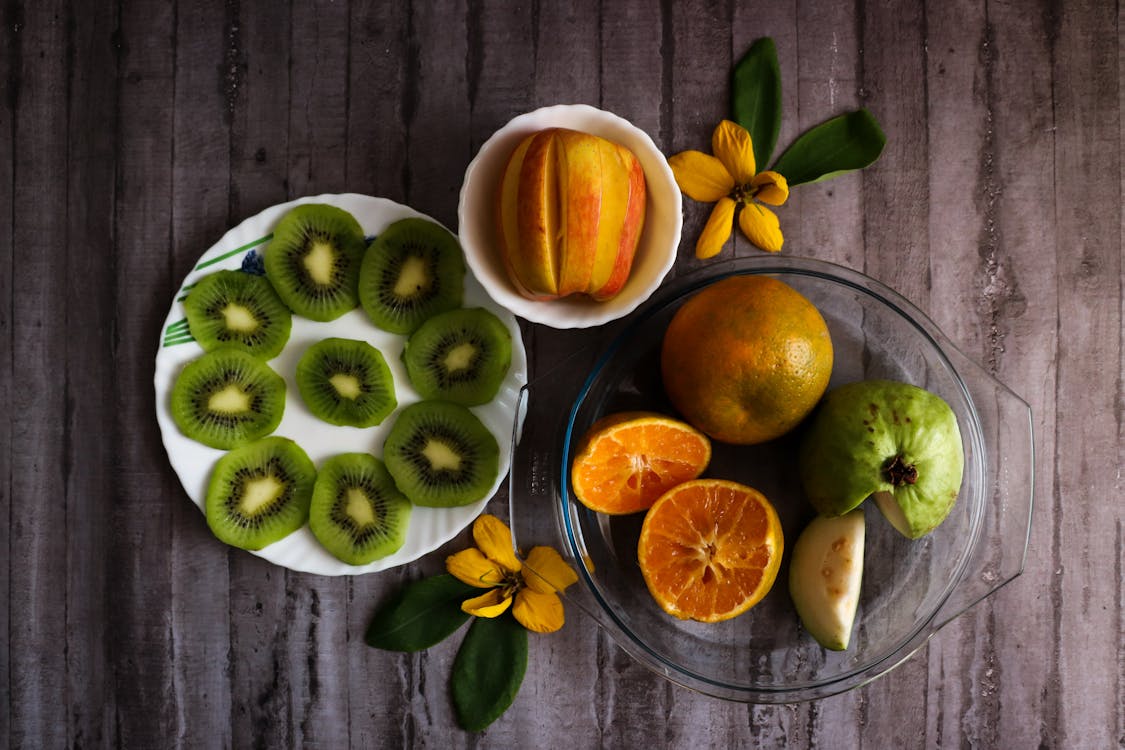In the realm of nutrition, the quest for an adequate protein intake often looms large for vegetarians. Concerns about meeting protein requirements without consuming animal products frequently arise. However, it’s a consensus among doctors and specialists that a well-planned vegetarian diet can indeed furnish all the essential nutrients, including protein, vital for optimal health and well-being.
Understanding Protein and its Significance
Protein stands as a cornerstone in the journey of weight management, satiety, and the development of robust musculature. As per general dietary guidelines, women typically require around 46 grams of protein daily, while men may need approximately 56 grams. Nevertheless, these figures may vary based on individual factors such as activity levels, age, weight, and more.
Diving into the World of Vegetarian Protein Sources
For those embracing a vegetarian lifestyle and seeking reassurance regarding their protein intake, fret not. Below, we present a curated list of top-notch vegetarian protein sources readily available to grace your kitchen shelves.
1. Soya Paneer (Tofu)
Soya Paneer, often known as Tofu, resembles a blank canvas ready to absorb all the flavors you introduce to it. Whether blended into your smoothie or incorporated into salads, sandwiches, noodles, or veggie bowls, Tofu adapts seamlessly, enriching dishes with its versatility. Not only does it serve as a robust protein source, but it also boasts commendable calcium content, contributing to bone health.
Nutritional Content:
- Tofu: 8 grams of protein per 100 grams
- Firm tofu: 12 grams of protein per 100 grams
2. Soya Milk
Amidst the plethora of plant-based milk options lining supermarket aisles, Soy Milk emerges as a singular contender mirroring the protein profile of cow’s milk. With 8 grams of protein per cup serving, Soy Milk takes the lead in the protein race, leaving almond milk lagging far behind with merely 1 gram per cup.
Nutritional Content:
- Soy Milk: 8 grams of protein per 1 cup serving
3. Peanuts
Contrary to popular belief, peanuts don’t belong to the nut family but are rather classified as legumes, akin to green peas, soybeans, and lentils. Emerging from the soil beneath, peanuts flourish as the fruit of a leguminous plant. Originating possibly in South America, specifically Brazil or Peru, peanuts have a rich history dating back to ancient pottery adorned with peanut-shaped motifs. Packed with a whopping 26 grams of protein per 100 grams, peanuts reign supreme as a protein powerhouse among vegetarian options.
Nutritional Content:
- Peanuts: 26 grams of protein per 100 grams
4. Dal (Lentils)
Beans, lentils, and peas emerge as stalwart protein sources for vegetarians. Lentils, in particular, stand tall as a low-fat, high-protein, and cost-effective protein source. Various types of lentils grace the culinary landscape, each offering its unique nutritional profile.
Nutritional Content:
- Dal: 8-9 grams of protein per 100 grams
- Chickpeas (Chola): 7 grams of protein per 100 grams
- Garden peas (Matar): 7 grams of protein per 100 grams
- Beans: 7-10 grams of protein per 100 grams
Conclusion
In the pursuit of optimizing protein intake within a vegetarian framework, a multitude of options abound. From the versatile Tofu to the humble lentil, nature offers an array of protein-rich treasures waiting to elevate your culinary endeavors and nourish your body. By incorporating these vegetarian protein sources into your diet mindfully, you embark on a journey towards holistic health and vitality.
Elevate your health today embracing the abundance of vegetarian protein sources at your disposal. Let your plate be a canvas for culinary creativity, adorned with the richness of plant-based proteins, paving the path for a vibrant and nourished existence.
In Hindi
उच्च प्रोटीन भोजन: शाकाहारियों के लिए श्रेष्ठ प्रोटीन स्रोतों का अन्वेषण
पोषण के क्षेत्र में, शाकाहारियों के लिए पर्याप्त प्रोटीन की आवश्यकता का मुद्दा अक्सर उभरता है। पशु उत्पादों का सेवन किए बिना प्रोटीन की आवश्यकता को पूरा करने के बारे में चिंता अक्सर उत्पन्न होती है। हालांकि, डॉक्टरों और विशेषज्ञों का सहमत है कि एक अच्छे योजनाबद्ध शाकाहारी आहार वास्तव में सभी आवश्यक पोषक तत्व, सहित प्रोटीन, को प्रदान कर सकता है, जो शारीरिक स्वास्थ्य और कल्याण के लिए महत्वपूर्ण है।
प्रोटीन और उसका महत्व
प्रोटीन वजन प्रबंधन, पेट संतुष्टि, और मजबूती के विकास के सफर में एक मूलभूत अंक है। सामान्य आहार दिशानिर्देशों के अनुसार, महिलाओं को लगभग प्रतिदिन 46 ग्राम प्रोटीन की आवश्यकता होती है, जबकि पुरुषों को लगभग 56 ग्राम की आवश्यकता हो सकती है। फिर भी, ये आंकड़े व्यक्तिगत कारकों जैसे गतिविधि स्तर, उम्र, वजन, और अधिक के आधार पर भिन्न हो सकते हैं।
शाकाहारी प्रोटीन स्रोतों की दुनिया में डूबना
वे जो शाकाहारी जीवनशैली अपनाते हैं और अपने प्रोटीन सेवन के संबंध में आत्मविश्वास की खोज में हैं, उन्हें चिंता करने की जरूरत नहीं है। नीचे, हम आपके रसोई की शेल्फों को सजाने के लिए तैयार श्रेष्ठ शाकाहारी प्रोटीन स्रोतों की एक विशेष सूची प्रस्तुत करते हैं।
1. सोया पनीर (टोफू)
सोया पनीर, अक्सर टोफू के रूप में जाना जाता है, एक खाली चित्र है जो आपके द्वारा इसे परिवर्तित किए गए सभी स्वादों को अवशोषित करता है। चाहे आप इसे अपनी स्मूदी में मिलाएं या सलाद, सैंडविच, नूडल्स, या सब्जी बाउल में मिलाएं, टोफू अनुकूलता से सहज रूप से उपयुक्त होता है। यह न केवल एक मजबूत प्रोटीन स्रोत के रूप में कार्य करता है, बल्कि यह हड्डियों के स्वास्थ्य में योगदान भी करता है।
2. सोया दूध
सूपरमार्केट के विभिन्न प्लांट-आधारित दूध विकल्पों में से, सोया दूध एकमात्र ऐसा उत्पाद है जो गाय के दूध के प्रोटीन प्रोफाइल को मिमिक करता है। प्रति 1 कप सेविंग में 8 ग्राम प्रोटीन के साथ, सोया दूध प्रोटीन की दृष्टि से अल्मंड दूध को दूर पीछे छोड़ देता है, जो केवल 1 ग्राम प्रति कप होता है।
पोषणीय सामग्री:
- सोया दूध: प्रति 1 कप सेविंग में 8 ग्राम प्रोटीन
3. मूंगफली
पॉप्युलर धारणा के विपरीत, मूंगफली नट फैमिली में नहीं है, बल्कि वास्तव में यह लेग्यूम जैसे हरी मटर, सोयाबीन, और दाल के साथ श्रेणीबद्ध किया जाता है। धरती के नीचे से उत्पन्न होती है, मूंगफली एक लेग्यूमिनस पौधे का फल के रूप में उभरती है। दक्षिण अमेरिका, विशेष रूप से ब्राजील या पेरू में उत्पन्न होने के संभावना से, मूंगफली का एक ऐतिहासिक इतिहास है जो प्राचीन मिट्टी के बर्तनों पर मूंगफली के आकार के मोतियों के रूप में उत्पन्न होता है। 100 ग्राम में 26 ग्राम प्रोटीन के साथ, मूंगफली शाकाहारियों के लिए प्रोटीन का एक शक्तिशाली स्रोत है।
पोषणीय सामग्री:
- मूंगफली: प्रति 100 ग्राम में 26 ग्राम प्रोटीन
4. दाल (लेंटिल्स)
दाल, विशेष रूप से एक कम चर्बी, उच्च प्रोटीन, और लागत-कुशल प्रोटीन स्रोत के रूप में ऊपरी कड़ी है। विभिन्न प्रकार की दालों में अलग-अलग प्रोटीन की स्रोत होती है।
पोषणीय सामग्री:
- दाल: प्रति 100 ग्राम में 8-9 ग्राम प्रोटीन
- छोला: प्रति 100 ग्राम में 7 ग्राम प्रोटीन
- मटर: प्रति 100 ग्राम में 7 ग्राम प्रोटीन
- बीन्स: प्रति 100 ग्राम में 7-10 ग्राम प्रोटीन
निष्कर्ष
शाकाहारी प्रोटीन स्रोतों के सहारे अपने पोषण को अपग्रेड करने में एक बहुत ही महत्वपूर्ण कदम है। आपकी प्लेट को रसोईयों की रिच संस्कृति के लिए एक कैनवास के रूप में उपयुक्त बनाए




